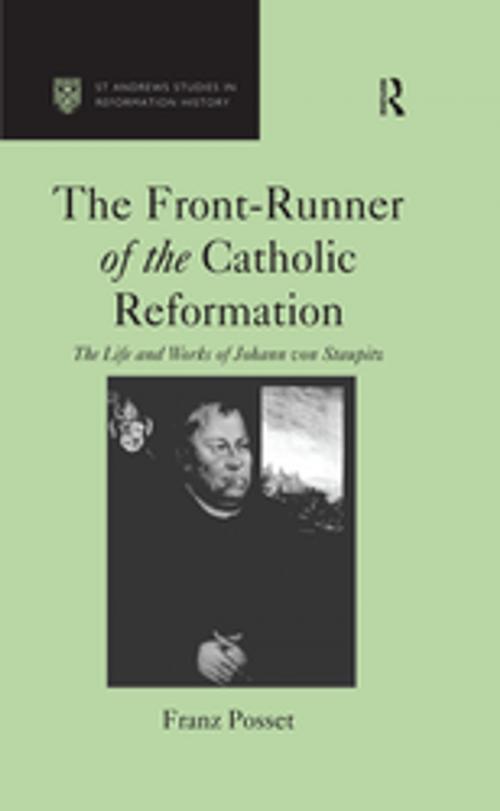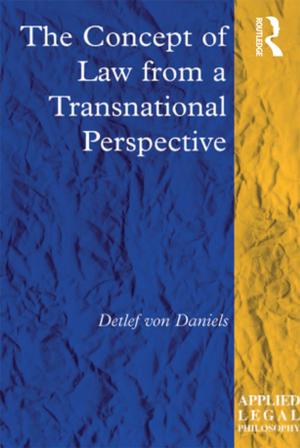The Front-Runner of the Catholic Reformation
The Life and Works of Johann von Staupitz
Nonfiction, History| Author: | Franz Posset | ISBN: | 9781351889308 |
| Publisher: | Taylor and Francis | Publication: | March 2, 2017 |
| Imprint: | Routledge | Language: | English |
| Author: | Franz Posset |
| ISBN: | 9781351889308 |
| Publisher: | Taylor and Francis |
| Publication: | March 2, 2017 |
| Imprint: | Routledge |
| Language: | English |
Johann von Staupitz is generally acknowledged as one of the most important influences on Martin Luther, convincing him of the sin-remitting grace of God. It was this revelation that was to spur Luther to formulate his theology of salvation by faith alone which was to lead to his break with the Catholic church. When Luther was brought to task by the church authorities for his heretical views it was Staupitz who was deputed to remonstrate with him, and it was Staupitz who sent a copy of his theses on indulgences to the Pope. Despite Luther's defection from Rome, he was to remain on good terms with the orthodox Staupitz who was consistently at the forefront of reformation within the Catholic Church. This book sheds light on the spiritual and theological beliefs of Staupitz, placing him in the midst of the late medieval reform efforts in the Augustianian order. It argues that as reformer, sermonizer, and friend of humanists Staupitz was a major player in the world of early sixteenth century theology who had a profound influence on the course of the Reformation.
Johann von Staupitz is generally acknowledged as one of the most important influences on Martin Luther, convincing him of the sin-remitting grace of God. It was this revelation that was to spur Luther to formulate his theology of salvation by faith alone which was to lead to his break with the Catholic church. When Luther was brought to task by the church authorities for his heretical views it was Staupitz who was deputed to remonstrate with him, and it was Staupitz who sent a copy of his theses on indulgences to the Pope. Despite Luther's defection from Rome, he was to remain on good terms with the orthodox Staupitz who was consistently at the forefront of reformation within the Catholic Church. This book sheds light on the spiritual and theological beliefs of Staupitz, placing him in the midst of the late medieval reform efforts in the Augustianian order. It argues that as reformer, sermonizer, and friend of humanists Staupitz was a major player in the world of early sixteenth century theology who had a profound influence on the course of the Reformation.















